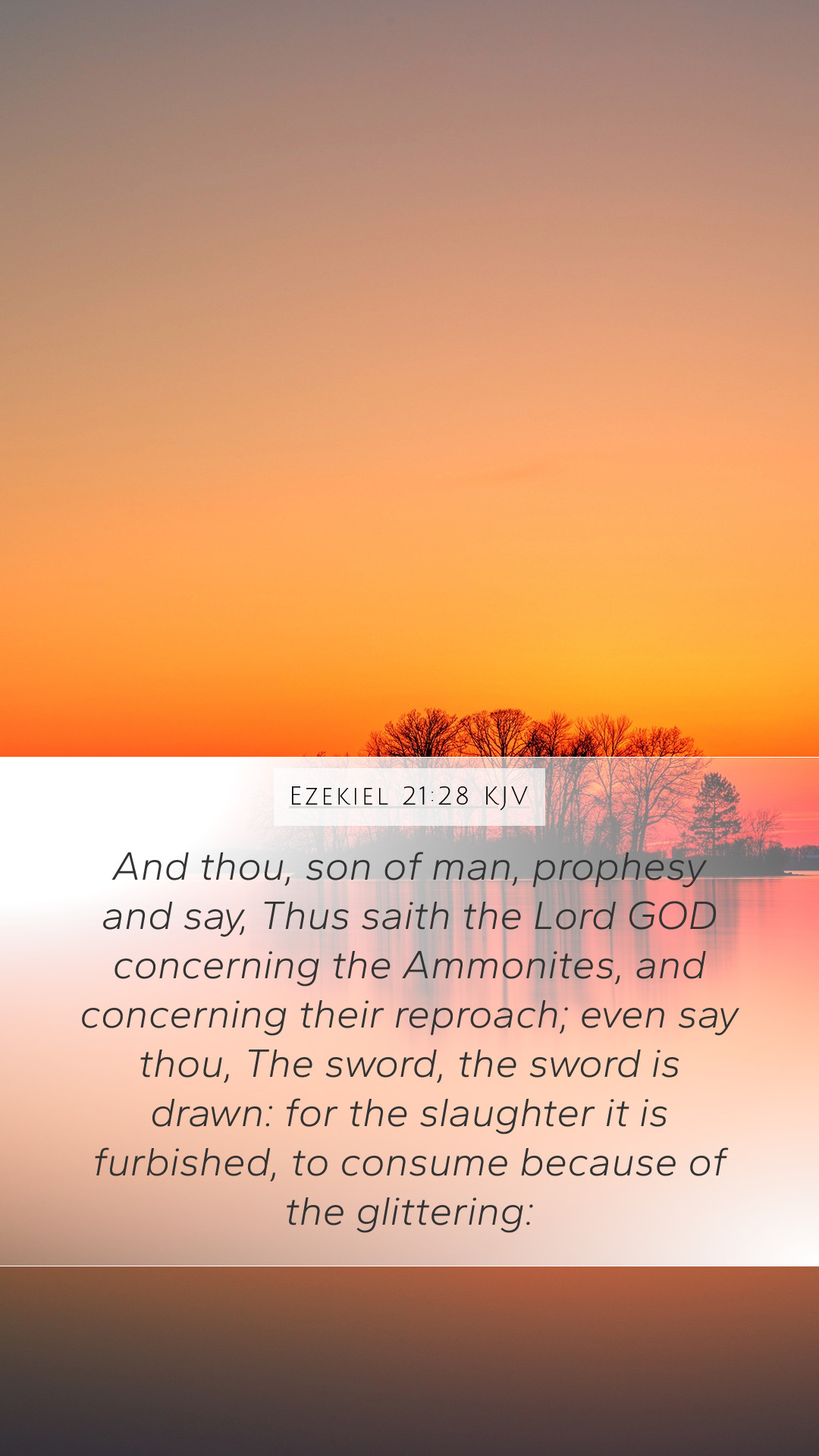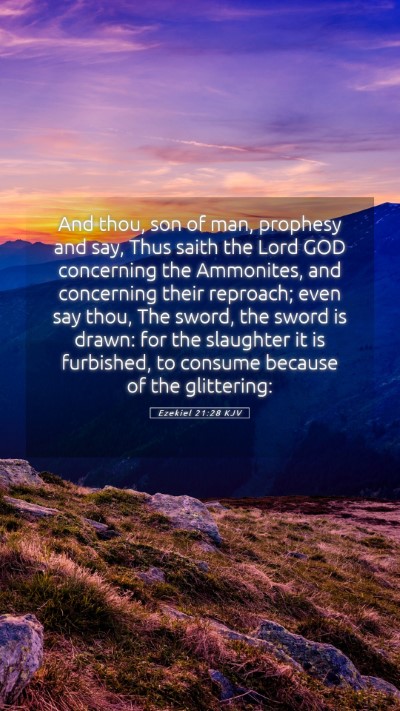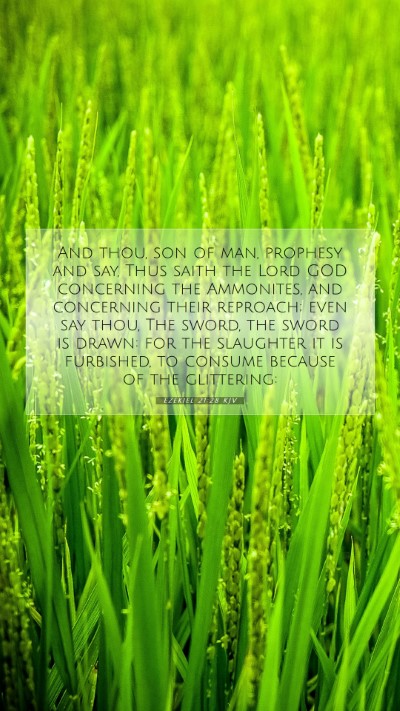Ezekiel 21:28 - Meaning and Interpretation
Ezekiel 21:28 states: "And thou, son of man, prophesy and say, Thus saith the Lord God; Concerning the Ammonites, and concerning their reproach; even say thou, The sword, the sword is drawn; for the slaughter it is furbished, to consume because of the glittering."
Overview of Ezekiel 21:28
The verse speaks to the ongoing prophetic message about the fate of the Ammonites, focusing on impending judgement. This verse illustrates the themes of divine justice and the consequences of nations turning against Israel.
Commentary Insights
Matthew Henry's Commentary
Henry emphasizes the gravity of the impending judgement and how God uses His prophets to communicate His will. He relates this to the broader themes of divine retribution against nations that oppose God's chosen people. The drawn sword symbolizes war and punishment against wickedness, highlighting God's sovereignty over not only Israel but also foreign nations.
Albert Barnes' Commentary
Barnes provides insight into the historical context, noting that the Ammonites were traditional enemies of Israel. He explains that this prophecy serves as a reassurance to the people of Israel that God is aware of their enemies and will act against them. This verse expresses God's promise of protection for His people while delivering judgement on those who oppose them.
Adam Clarke's Commentary
Clarke elaborates on the phrase “the sword is drawn,” indicating that the time for judgement has arrived. He discusses the symbolism of the sword as a representation of God’s judgement and the seriousness of the situation facing the Ammonites. Clarke's interpretation leans towards understanding the necessity of divine judgement as a means of establishing justice.
Key Themes in Ezekiel 21:28
- Divine Judgment: The verse illustrates God's impending judgement against the Ammonites for their actions against Israel.
- Prophetic Warning: It serves as a prophetic warning delivered through Ezekiel, showcasing the role of the prophet in God's plan.
- Sovereignty of God: The mention of the drawn sword signifies God's control over nations and their fates.
- Historical Context: Acknowledging the enmity between Israel and the Ammonites enhances the understanding of the prophecy's significance.
Application and Relevance
The implications of Ezekiel 21:28 resonate with contemporary issues of justice and the consequences of oppression. When studying this verse, one can reflect on the importance of righteousness and the accountability that nations have before God. This teaching encourages readers to seek divine guidance in their actions and recognizes that God remains sovereign over all worldly affairs.
Cross-References
- Jeremiah 49:1-6 - Prophecies concerning the Ammonites.
- Ezekiel 25:1-7 - Further pronouncements of judgement against surrounding nations.
- Isaiah 11:14 - The theme of divine retribution against enemies of Israel.
Conclusion
Ezekiel 21:28 serves as a profound reminder of God's judgement on nations opposing His will. Through the insights gathered from public domain commentaries, the verse emphasizes the importance of prophetic voices in understanding divine intentions. It not only offers historical context but also applies timeless lessons of justice and the consequences of rebellion against God.
Further Study Questions
- What does this verse reveal about the nature of God’s justice?
- How can believers today apply the message of accountability found in Ezekiel 21:28?
- In what ways can the understanding of this prophecy affect our view of contemporary issues of justice?


